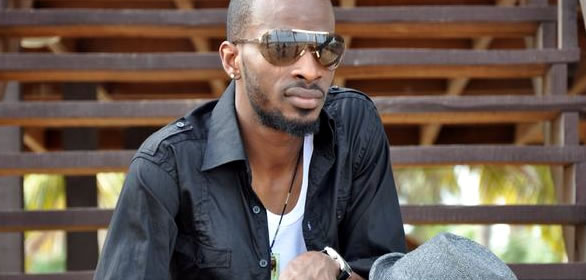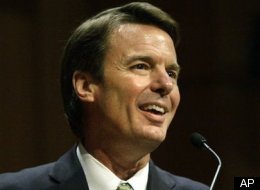
Residents of more than 74 estates and 18 villages under the umbrella of Lekki-Etiosa-Epe Estates Indigenes and Stakeholders Association (LEEEISA), yesterday in Lagos, vowed to do anything possible to stop the Lagos State government and Lekki Concession Company (LCC) from going ahead to collect toll at the controversial toll plazas on Lekki-Epe Road.
The group, at a rally held yesterday in Lekki first roundabout, called for an outright cancellation of the toll plazas, saying that the indefinite suspension of the tolling announced last week by the state governor, Raji Fashola, was for political reasons and would re-introduce the tolling after the election.
As early as 6.30a.m, the leaders of the residents associations,Ausbeth Ajagu,Ebun-Olu Adegboruwa, Ayobami Biobaku, and members of the Heritage Group and leader of the Ajah IlajeAssociation, A. Ikuesan, had all converged on the Lekki Phase 1 roundabout for the rally. They were all wearing T-shirts with the inscription; ‘No to fencing, no to toll gate’.
The police, led by the DPO of Maroko Police Station, Mr. Ukoh, were on hand to offer protection to the group and to stop hoodlums from hijacking the event.
Shady project
The group said that Lagos State government has not been able to give reasons why it would toll the only major road constructed for a local government that generates one of the highest income for the government; and yet, there are no government hospitals and only two secondary schools.
“Putting a toll on this road is restricting our movement,” said Lawal Alalekan, the group’s spokesperson.
“Come to think of it, Lagos State government is deeply involved in the financing of this project. Which money are they using? It is the tax payer’s money! Lagos State government gave a 42 million US dollar loan or grant for the take-off of this project. That is over 6 billion naira. Where are the monies got into? Lagos State government guaranteed the loan that was used in financing the project: over 240 million dollars. They have not done the road to ten kilometres, they want to start tolling. Our question is why preferential treatment to LCC? Why has the government committed so much of the tax payers money; and they are still asking us to pay?”said Mr. Alalekan.
‘We are ready for dialogue’
The chairman of LEEEISA, Ausbeth Ajagu, however, thanked Mr. Fashola for the indefinite suspension of the tolling, calling on the governor to carry the people and the stakeholders along, for mutual and better understanding.
He said the group would like to dialogue with the state government on the toll issue, as well as on some other issues pertaining to the smooth and conducive living environment in Lekki-Etiosa-Epe axis.
Secretary of the Lekki resident association, and chairman, Nicon Town Residence Association, Tayo Adebowale, said that it was socially irresponsible for a government to place an additional burden of tolling on people.
“Whether there is godfather behind it or not, I care less! All I know is that, I am not going to put any extra burden on my economic life,” Mr. Adebowale said.
The undertones
Solomon Onyibe, a real estate consultant, said the Lagos State government and LCC have not been very transparent in the execution of the contract since inception. He added that it was obvious “there are a lot of undertones in the contract arrangement.”
“Let them come out and make the contract agreement public! Let’s see how the money was raised. Let’s check the books,” Mr. Onyinbe said.
“Our stand here is that you cannot toll an existing road. We can’t pay. What is special about Lekki? The facility they provided in Lekki Peninsular, is it more than what they provided in: Ikoyi, Yaba, Surulere, and Festac? All the roads in these places I have mentioned are tarred. If you are going from here to Festac and Yaba, you will not go on an untarred road until you get to your house! Why not toll there? The only road they seem to be doing here, they want to toll it. This is oppression,” Mr. Oyinbe added.
In his remarks, the president of Ilasan Housing Estate, and the deputy leader of Maroko Evictee, Tajudeen Jegede, stated that what they want is a total cancellation of the purported toll, saying that a larger percentage of the people staying in the axis are poor people.
“If you look at the people staying at Ilasan Housing Estate, for instance, they are people who were evicted from Maroko in 1990. Now, we have not been able to balance presently as am talking to you now. From Obalende to Ajah is 200 naira. If they should add the toll fee, we would be paying up to 500 naira,” he said.
Mr. Jegede, who also is the chairman of the technical committee, Lekki Free Trade Zone, pointed out that even the Lagos State civil servants on that axis would not be spared, as all their earnings would go into transportation should the government go ahead and imposed the toll on the people.
The protest spilled on to the Lekki-Epe expressway, bringing vehicular movement to a total standstill, with the police and LASTMA officers assisting to control the traffic.
‘PDP government will scrap Lekki toll’

Olatokunbo Kamson, a gubernatorial aspirant of the Peoples Democratic Party (PDP) in Lagos State over the weekend said a PDP government in the state will scrap the planned tolling of the Eti-Osa-Lekki-Epe Expressway...
Mr. Kamson described the proposed payment of N200 on the Eti-Osa-Lekki-Epe Expressway by every motorist as criminal.
“They propose to charge N200 for one toll and there are three tollgates for people living around VGC, Ajah, and the environs. That means anybody working in Victoria Island and living in Ajah will have to be paying N600 toll per trip. That is N1,200 per day. That is criminal, having in mind that the road was constructed with tax payers’money,” he said in a statement.
He promised that the opposition party(PDP) will scrap the tariff if it wins this year’s election in the state.
Too expensive
Mr. Kamson added that the proposed toll rates is among the highest anywhere in the world.
“Again, if you look all over the world, where have you paid more than 25 percent? I have plied lots of roads in the US that are tolled. Minimum is 25 cent. And how much is 25 cent? Is it up to N100? Why are they proposing to charge N200? That is more than a dollar,” he said.
An alternative route
He also berated the Lagos State government for not providing alternatives for people who may not have the huge amount required to ply the road on a daily basis, adding that lots of Lagosians live below the $1 a day.
“It is the standard internationally that people must be given alternatives. If you want to build a road that you are going to toll, then you must provide an alternative for people to ply so that people who are incapable financially can also have access to the amenity. It is wrong for government to insist on toll fees without the provision of alternatives.
“Besides, the road is not even completed; that means the government is trying to use people’s money to complete the road and also tax them. It is not fair,” Mr. Kamson said.
On December 29, 2010, the Lagos State governor, Babatunde Fashola, ordered the suspension of the planned toll collection on the Eti-Osa-Lekki-Epe Expressway by the Lekki Concession Company (LCC) until further notice.


